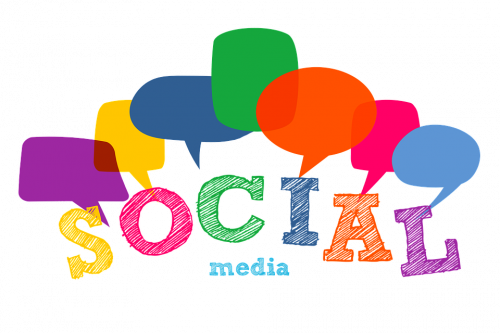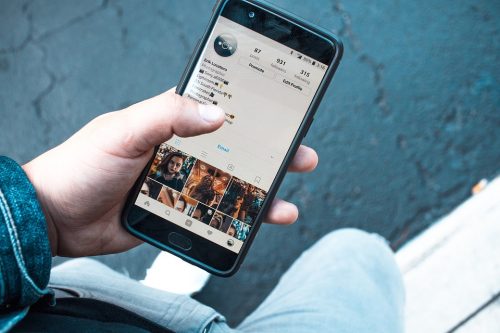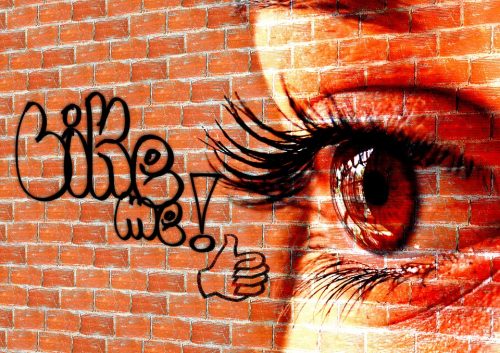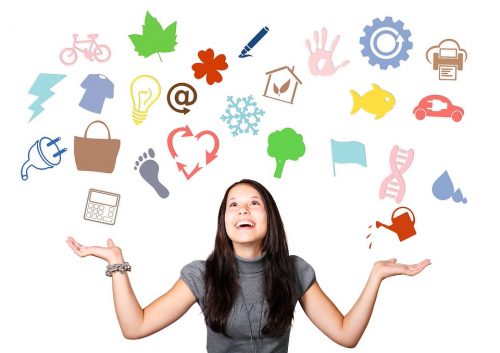Nothing is wrong with getting hooked on social media. It’s the kind of messages you engage with that sometimes make it so. Maybe, it’s about time to be mindful of your responses, the things you share, posts you like, as those describe very much who you are.

My kids would always ask me how it was when we were younger, the time before there were computers, cell phones, and social media. They would often laugh and would say that they can’t imagine how we were able to survive without all those. Well, we do everything face to face. We chat, we set dates, we fight, we deal with almost every matter at a personal level. We feel we touch, we laugh, we cry, and we let our true emotions show. Maybe that’s why it’s natural for us to hear and say the words, “I know you too well.”
And yes, we survived it, and I think it was better during our time.
The Era Of Advanced Digital Signal Processing Make Us Strangers With One Another
Signal processing has now become the central part of our modern world. Young kids and the not so young rely on it when it comes to communication. It is said to be at the crossroads of technological advancement and diversity. It affects our social interaction. Social media utilizes this technology to learn how to get ahead when it comes to things we might want to see and emotions we are to show others. The sad part is, we seem to have become so dependent on social media. Whenever we want to get updated with what’s happening, we look it up on social media. When we get bored, we turn to social media for entertainment. When we have to talk to or meet someone, we message them through their social media accounts.

Social media makes us feel toxic sometimes, but we just can’t have enough of it. Families and friends prefer to communicate through their social media account (or messenger) and even argue through that platform, too. It seems that we get closer, but in reality, it had made us distant from each other.
The Flaws In Social Media
Many may not be aware, but Facebook, Tweeter, Instagram, YouTube, and other platforms tend to automatize our lives. Unconsciously, we tend to follow what it tells us to do next. They tend to dictate how we should look like, where we should go, what we should buy or eat, and worse, how we should feel.
Have you noticed that?
You are in an excellent mood one moment, and then suddenly feel outrageous the moment you open your FB account because you see someone bashing a friend. What’s your initial reaction? Either you will feel bad for your friend, or you will have this sudden angry outburst. You suddenly feel like cursing for no reason. You never really know the story behind, but because it’s your friend and the messages are loud and destructive, you immediately type offensive words. Let’s admit it, that’s our nature.

More of this scenario happens every single moment. We can’t help but get involved. Clicking the like button or angry face makes it easy.
But very rarely do we react and engage when posts are positive. Have you bothered to stay for a moment to read Bible verses or positive thoughts shared, and give it a thumbs up or reply with a positive voice? Yes, but we pay attention to them only on rare occasions.
This is how social media dictates how we should feel (angry, outrageous, scandalous, in the mood for a fight).
How This Machine Encourages Us To Be Indifferent
For those who are not aware yet, in social media, not all that we see and read are offered to us with fairness.
The content feeds we read each day are not sorted chronologically. They are based on the things we are likely to engage in every time we use our FB. That’s how social media reads us and decides on what to feed us. Your engagement is how you connect whether you react positively or negatively.
A study conducted revealed that negative feelings, like anger and fear, are often the strong indication for the basic sorting algorithm to detect what it’s going to show you on your social media account, be it in FB, Twitter, or YouTube. Because as you respond or react to it, you show your emotions to the world. It tends to go viral and seen and followed by many. The more condemning your words are, the more people will be interested in reading it, and there’s a significant probability that those who are reading the scandalous posts are likely to react, too.

This is the ugly truth behind what we see on our feeds. It is not our own posts, but the ones we click and react to. The dark secret of audience engagement is that they are using our emotions to get attention. The more attention they get at the expense of our wrong words and feelings, the more revenue would add digits to their bank account through the ad sales.
It’s Your Social Media Account, And You Have The Power To Redirect It In the Right Direction
Prof. Molly Crockett, an American neuroscientist, explains how the selection of stories in our feeds online is made. She says that they could be artificially overblown because the most outrageous content could provoke emotions and have a high likelihood of engagement.
If research shows that social media is capitalizing on our corrupt emotions to get more engagement, we should begin to be aware of our feelings. Being mindful of what we should be reading, how we should be reacting, and what we should be sharing in our social media accounts could help reverse the algorithm. If the machine would sense us engaging on more positive things, then it will feed us positive stories to which we will react positively and thus, spreading positivity around. It’s hard but practicing mindfulness could slowly bring us there. “Mindfulness works because it helps you replace your stressful thoughts and anxiety with something positive,” according to Julie K. Jones, Ph.D., LPC.

Therapist Leonie Stewart-Weeks suggests 1-minute mindfulness exercises, and here is a sample – “For one minute, repeat ‘May I be happy, may I be well, may I be filled with kindness and peace.’ You can substitute “you” for “I” and think of someone you know and like, or just send love to all people.”
Spreading good emotions can create a better social media world for our kids and ourselves.
Everybody has their flaws, even the platform we are using for our nonverbal social interaction. We have depended on social media so much, but we have to take responsibility. You have the power to counter the flaws in these social media platforms by focusing on positive things. A good, engaging social media will allow us to maximize its utility in our lives.
Social media feeds us with what it senses is meaningful to us (the users). Are your anger and negative emotions that significant to you that you want to show it to the world? “Meditation works as a therapy to increase impulse control. This can really help when mood changes seduce us into bad behavior,” says therapist George Hofmann.
Just be reminded how hard it is to be in conflict with your parents – what more with the world.
